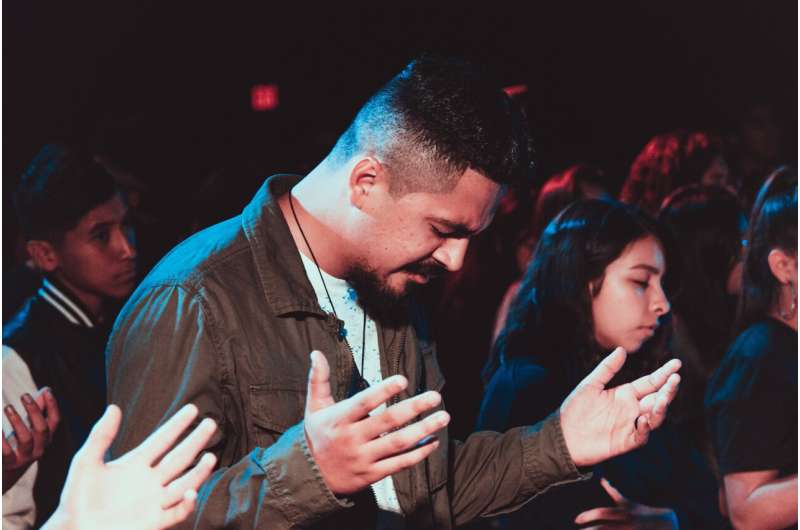Pastors serve as primary source of mental health care for Black, Latino congregants

A new study of Black and Latino Christians found they often turn to their pastors for mental health care or information on mental health resources, even when those clergy feel ill-equipped to offer help or advice.
"Where Would You Go? Race, Religion, and the Limits of Pastor Mental Health Care in Black and Latino Congregations" includes information from focus groups with 14 pastors and interviews with 20 congregants from Black and Latino churches in Houston. The interviews explored how church members make decisions about where to seek mental health care or direct others for help.
Dan Bolger from Rice University and Pamela Prickett from the University of Amsterdam authored the study, which appeared in a recent edition of the journal Religions. Bolger said that while Black and Latino church members both sought mental health care from pastors, the motivation for seeking pastoral counsel varied between the two ethnic groups. Black congregants sought pastors over medical professionals because of stigma surrounding mental health issues in the broader community. Latinos, on the other hand, sought counseling from their pastors primarily due to stigma within their church.
Meanwhile, pastors overwhelmingly felt ill-equipped to offer such care or advice, citing time constraints, a lack of resources and/or insufficient social networks to best serve their churchgoers.
Bolger said the findings illustrate how pastors need support from the medical community in addressing their congregants' issues.
"Regardless of whether they want to be or not, pastors are on the front lines of this mental health crisis," he said. "People in religious communities see clergy as uniquely able to discern and handle these types of issues. The medical community, including the mental health community and other types of providers, can help with these types of issues by creating networks with pastors and working with local religious communities."
Bolger said building and strengthening partnerships between churches and mental health professionals will go a long way toward helping provide care to underserved communities.
"If pastors feel better equipped to address issues presented by their congregants, our findings indicate it will lead to better outcomes and better care," he said.
More information: Daniel Bolger et al, Where Would You Go? Race, Religion, and the Limits of Pastor Mental Health Care in Black and Latino Congregations, Religions (2021). DOI: 10.3390/rel12121062
Provided by Rice University




















